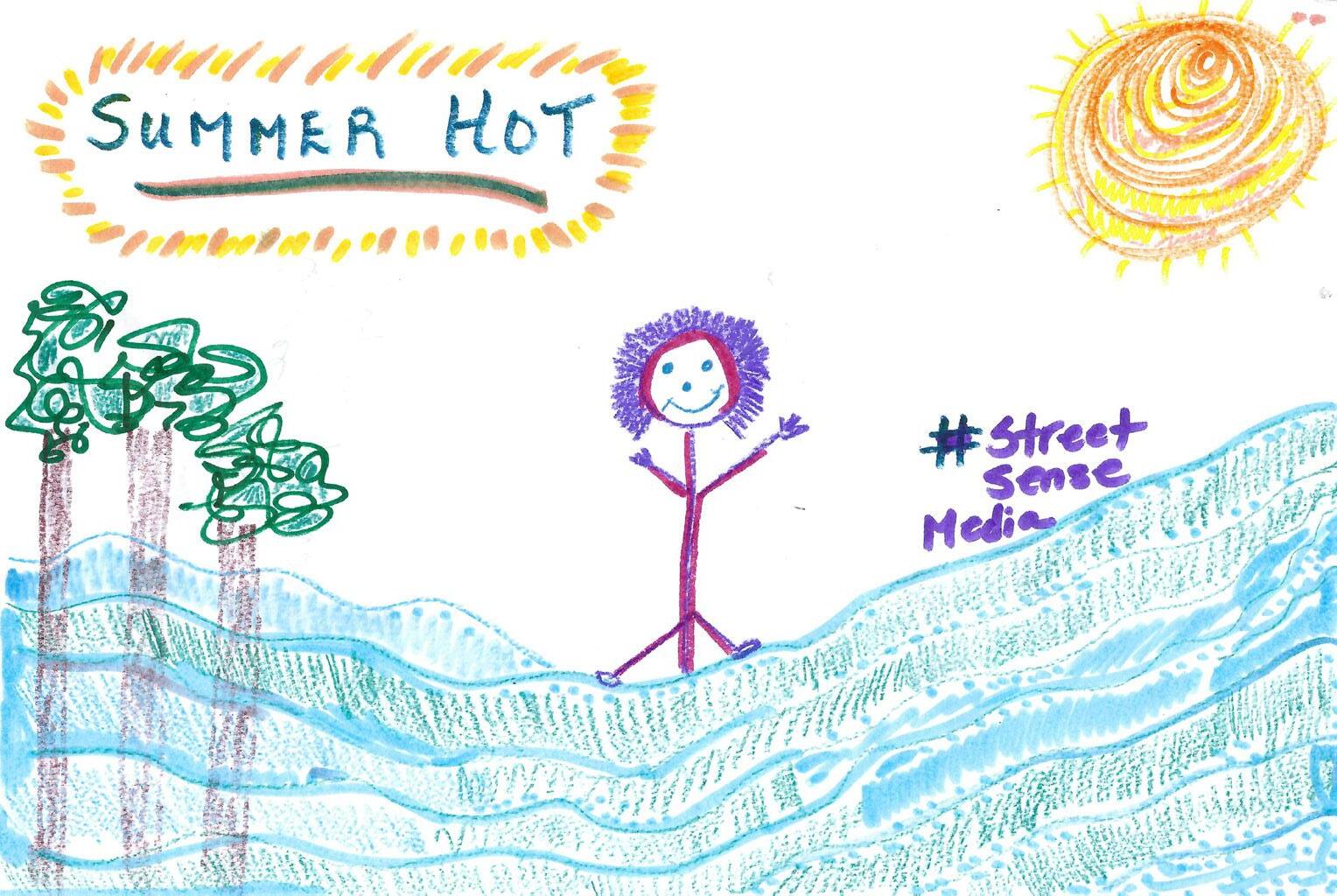






people moved into housing using case management services
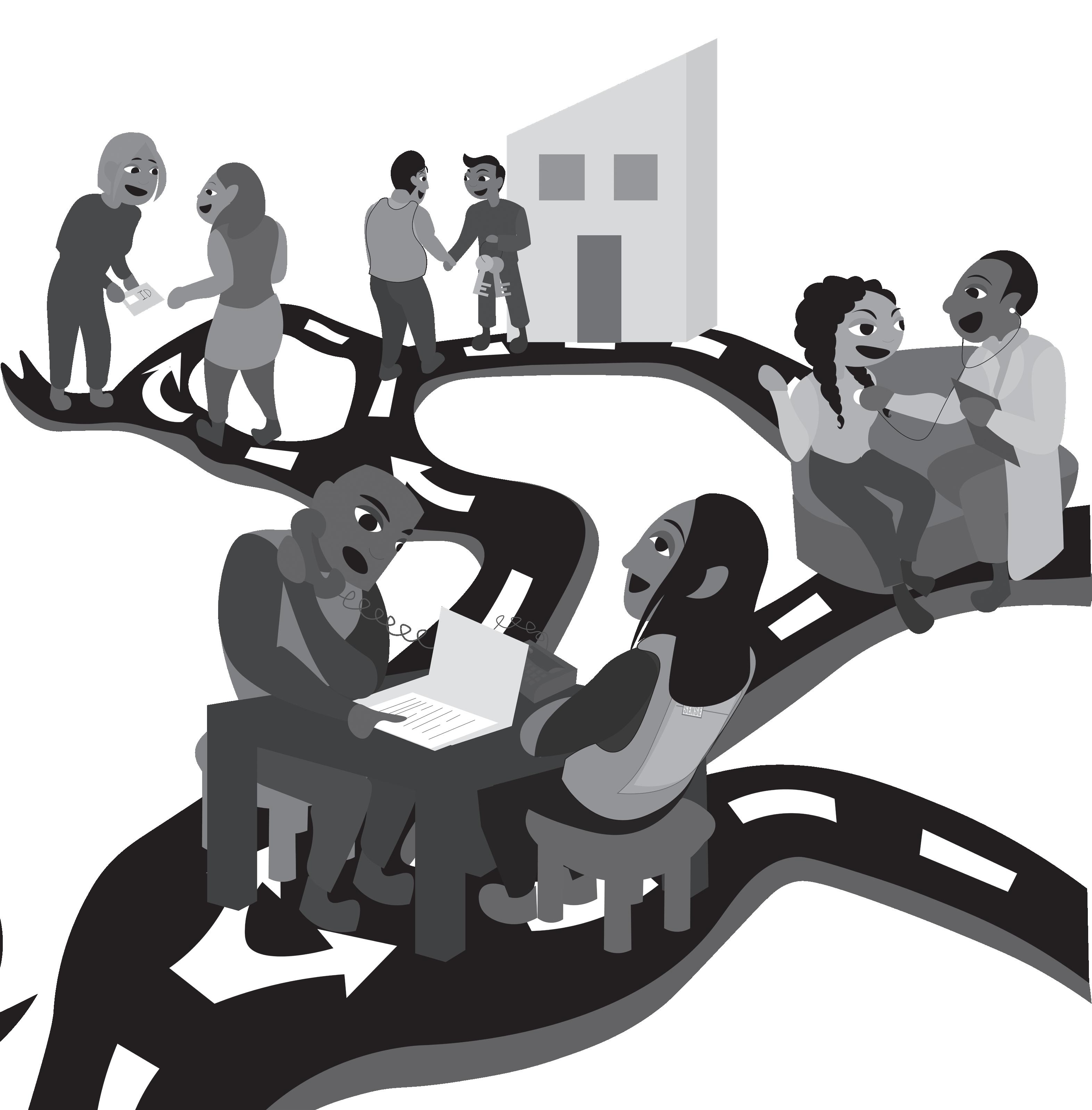
people, including artists/vendors, used case management services 2023,
of whom were new clients.
VENDORS
Abel Putu, Abraham Aly, Aida Peery, Akindele Akerejah, Amia Walker, Andre Baltimore, Andre Brinson, Andrew Anderson, Angie Whitehurst, Anthony Carney, Archie Thomas, Beverly Sutton, Brianna Butler, Cameé Lee, Carlos Carolina, Charles Armstrong, Charles Woods, Chon Gotti, Chris Cole, Clinton Kilpatrick, Conrad Cheek, Corey Sanders, Daniel Ball, Darlesha Joyner, David Snyder, Debora Brantley, Degnon “Gigi” Dovonou, Dominique Anthony, Don Gardner, Earl Parker, Eric Thompson-Bey, Erica Downing, Evelyn Nnam, Faith Winkler, Floyd Carter, Frederic John, Frederick Walker, Gerald Anderson, George Gray, Gracias Garcias, Greta Christian, Henrieese Roberts, Henry Johnson, Invisible Prophet, Ibn Hipps,
Ivory Wilson, Jacqueline “Jackie” Turner, Jacques Collier, James Davis, James Hughes, Jeanette Richardson, Jeff Taylor, Jeffery McNeil, Jeffrey Carter, Jemel Fleming, Jenkins Dalton, Jennifer McLaughlin, Jermale McKnight, Jet Flegette, Jewel Lewis, John Littlejohn, Josie Brown, Juliene Kengnie, Kenneth Middleton, Kym Parker, L.Q. Peterson, Laticia Brock, Lawrence
n 2023, we began offering case management services to help anyone, including vendors, with their needs — from obtaining identification cards and emergency cash for bills and food to accessing supportive programs and applying for housing vouchers. Our team builds long-term relationships with our vendors and other clients to understand their needs and help them create plans to achieve their goals.
Autry, Levester Green, Marc Grier, Marcus McCall, Martin Walker, Maurice Carter, Maurice Spears, Melody Byrd, Micheal Pennycook, Michael Warner, Michele Modica, Morgan Jones, Nathanial Piscitelli, Nikila Smith, Patricia Donaldson, Patty Smith, Peaceful Tobias, Phillip Black, Queenie Featherstone, Rachelle Ellison, Randall Smith, Rashawn Bowser, Reginald Black, Reginald
Denny, Ricardo Meriedy, Rita Sauls, Robert Vaughn, Robert Warren, Rochelle Walker, Ron Dudley, S. Smith, Sasha Williams, Saul Presa, Shawn Fenwick, Sheila White, Shuhratjon Ahmadjonov, Sureyakanti Behera, Susan Wilshusen, Sybil Taylor, Tasha Savoy, Tony Bond, Tonya Williams, Vennie Hill, Vincent Watts, Wanda Alexander, Warren Stevens, Wendell Williams
Physical and mental health services, emergency cash assistance and housing services were and are being provided hundreds of times throughout 2023.
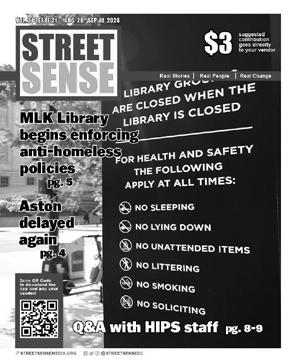
BOARD OF DIRECTORS
Ashley McMaster, Blake Androff, Clare Krupin, Corrine Yu, Jonquilyn Hill, Matt Perra, Michael Vaughan Cherubin, Michael Phillips, NanaSentuo Bonsu, Shari Wilson, Stanley Keeve
CHIEF EXECUTIVE
OFFICER
Brian Carome
FIONA RILEY Editorial Intern
D.C. and the National Parks Service (NPS) each closed one encampment during the week of Aug. 19, affecting at least three residents. NPS closed the two-person encampment in Foggy Bottom six days ahead of the scheduled closure, according to a sign posted in the area.
On Aug. 20, D.C. Office of the Deputy Mayor for Health and Human Services (DMHHS) officials closed a oneperson encampment at 23rd and E Streets in Northwest D.C., by the bridge above the E Street Expressway. The resident was not at the site when two DMHHS personnel and one Department of Human Services employee arrived to clear the area, though they appeared to have used a bike lock to fasten their tent to the side of the bridge.
A Community Bridge Inc. employee used Pinalen to disinfect the ground around the tent and side of the bridge before DMHHS employees snapped the tent rods and removed the tent from the bridge poles.
Representatives from Miriam’s Kitchen and The Washington Legal Clinic for the Homeless watched the closure and looked out for the resident, though they did not show up. The city has closed the encampment before, most recently on April 18.
On Aug. 23, NPS officials closed a homeless encampment at 26th and L Streets, displacing two residents. According to a sign in the middle of the park, the closure was originally scheduled for six days alter, on Aug. 29. NPS did not respond to a request for comment about the date change before publication.Eight NPS personnel arrived at around 9:30 a.m. to conduct the cleanup.
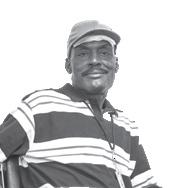
Gerald Anderson
Sept. 7
ARTIST/VENDOR

DIRECTOR OF PROGRAMS
Darick Brown
DIRECTOR OF VENDOR EMPLOYMENT
Thomas Ratliff
VENDOR
Queenie Featherstone
Aug. 29
ARTIST/VENDOR
Aida Peery, Chon Gotti, Nikila Smith VENDOR PROGRAM VOLUNTEERS Ann Herzog, Beverly Brown, Madeleine McCollough, Roberta Haber
EDITOR-IN-CHIEF Annemarie Cuccia

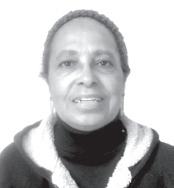
DEPUTY EDITOR Donte Kirby
EDITORIAL INTERNS
Fiona Riley, Franziska Wild, Samantha Monteiro
GRAPHIC DESIGN INTERN
Leela Waehrer
The sign states the land is “closed to camping,” and violating the rule is illegal. “We ask for and appreciate the public’s cooperation,” the sign reads.
Miriam’s Kitchen staff helped one resident relocate their belongings to the other side of L Street, which DMHHS was scheduled to clear on Aug. 27, and packed the other person’s belongings into a car so the person could relocate to another part of the city. Both encampment residents declined to speak to Street Sense.
Upcoming encampment clearings include: Aug. 28 at 1 Thomas Circle, Sept. 3 at 21st and E Streets NW, Sept. 4 at 1410 15th St. NW, Sept. 5 at the underpass of 695/395, Sept. 10 at the 1st and C St NW tunnel, Sept. 11 at 9th and Mt. Olivet Road NE, Sept. 12 at 1436 U St. NW, and Sept. 17 at 1828 L St. NW.
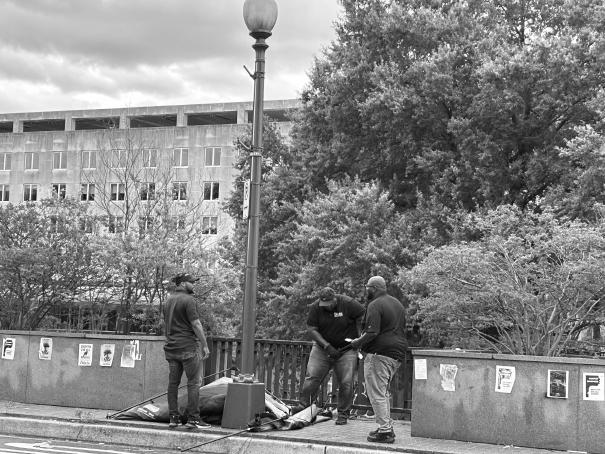
Angie Whitehurst
Sept. 8
ARTIST/VENDOR
Henrieese Roberts
Sept. 5
ARTIST/VENDOR
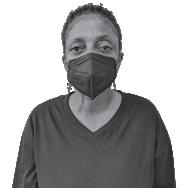
Tonya Williams
Sept. 9
ARTIST/VENDOR
□ The office will be closed Monday, Sept. 2, for Labor Day.
□ Take advantage of the new 10% over 30 bonus! Get a 10% bonus whenever you buy 30 or more newspapers.
□ 2-for-1 on the second Friday is back! Newspapers will be on sale to vendors for $.25 a piece for the last three business days of each issue.
□ Find a list of vendor announcements and other useful information just for you at streetsensemedia. org/vendor-info.
HIGH SCHOOL INTERN
Hannah Brooker
ARTISTS-INRESIDENCE
Bonnie Naradzay (Poetry), David Serota (Illustration), Leslie Jacobson (Theater), Roy Barber (Theater), Rachel Dungan (Podcast), Willie Schatz (Writing)
EDITORIAL VOLUNTEERS
Abigail Chang, Aiesha Clark, Alison Henry, Andrew Chow, Annabella Hoge, Anne Eigeman, August Dichter, Benjamin Litoff, Candace Montague,
Cari Shane, Chelsea Cirruzzo, Dan Goff, Elise Zaidi, Grier Hall, Jack Walker, J.M. Ascienzo, Josh Axelrod, Kate Molloy, Kathryn Owens, Lizzy Rager, Loren Kimmel, Matt Gannon, Micah Levey, Nina Raj, Ryan Bacic, Susannah Birle, Taylor Nichols, Zach Montellaro
Read this democratically elected code of conduct, by vendors, for vendors!
1. I will support Street Sense Media’s mission statement and in so doing will work to support the Street Sense Media community and uphold its values of honesty, respect, support, and opportunity.
2. I will treat all others, including customers, staff, volunteers, and fellow vendors, respectfully at all times. I will refrain from threatening others, pressuring customers into making donations, or engaging in behavior that condones racism, sexism, classism, or other prejudices.
3. I understand that I am not an employee of Street Sense Media but an independent contractor.
4. While distributing the Street Sense newspaper, I will not ask for more than $3 per issue or solicit donations by any other means.
5. I will only purchase the newspaper from Street Sense Media staff and volunteers and will not distribute newspapers to other vendors.
6. I will not distribute copies of “Street Sense” on metro trains and buses or on private property.
7. I will abide by the Street Sense Media Vendor Territory Policy at all times and will resolve any related disputes with other vendors in a professional manner.
8. I will not sell additional goods or products while distributing “Street Sense.”
9. I will not distribute “Street Sense” under the influence of drugs or alcohol.
10. I understand that my badge and vest are property of Street Sense Media and will not deface them. I will present my badge when purchasing “Street Sense” and will always display my badge when distributing “Street Sense.”
D.C. again pushed back the timeline for a homeless shelter in Northwest D.C., now slating its opening for early October
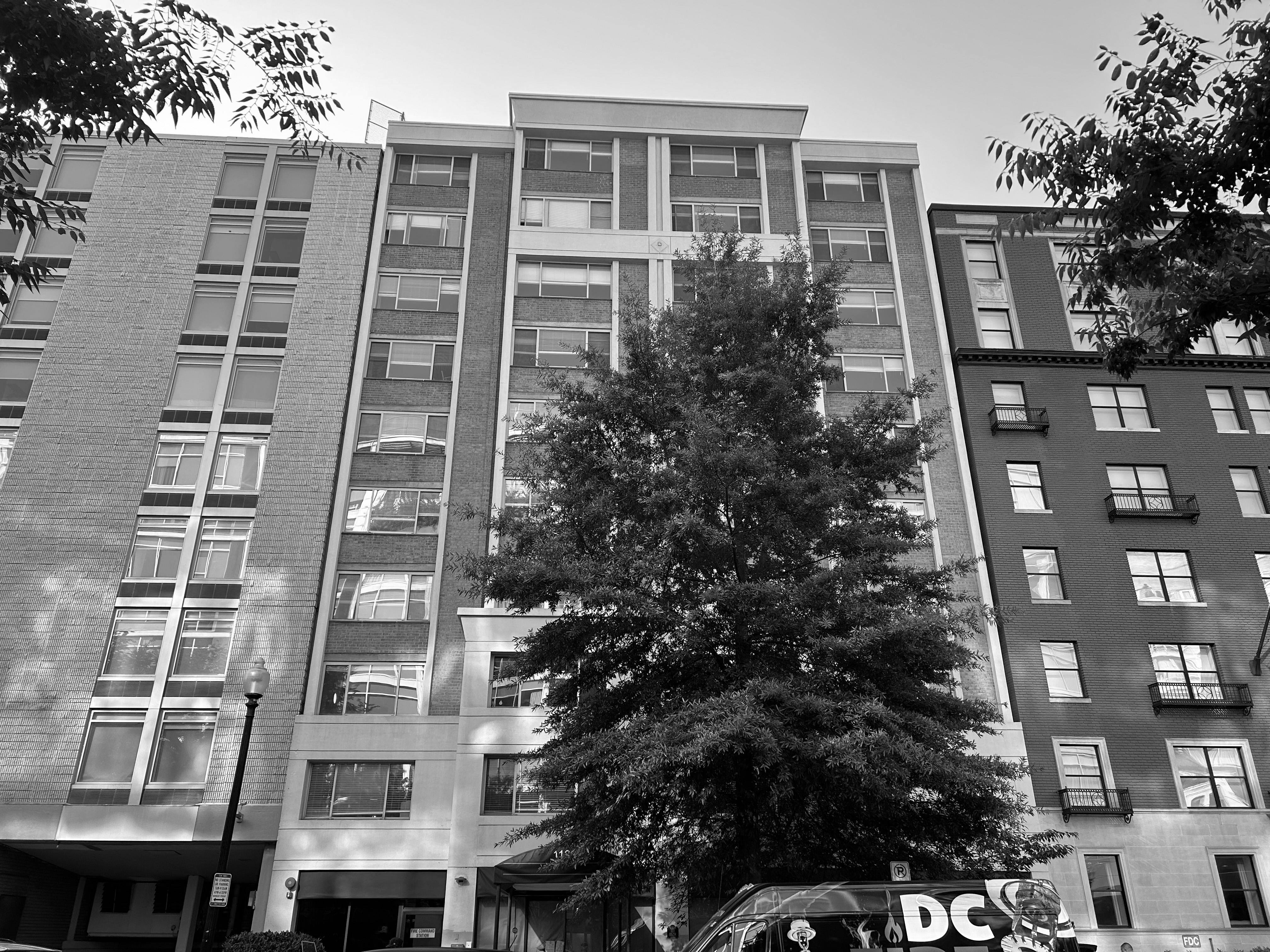
The Aston, a homeless shelter at 1129 New Hampshire Ave., is now expected to open between mid-September and early October, D.C. Department of Human Services (DHS) officials announced in Interagency Council on Homelessness and Community Advisory Team meetings in August. The shelter, which will offer individual rooms, was initially supposed to open a year ago.
The announcement refutes the city’s prediction earlier this summer the shelter would begin accepting residents in August. The delays come amidst a wave of encampment clearings, including three just blocks from the Aston, and high rates of shelter occupancy in the city. The Aston’s late opening is the second step of DHS’ timeline to add more than 500 city-funded low-barrier and specialty beds by the end of 2028.
A DHS spokesperson said officials pushed the opening date back from August to midSeptember or early October because of the “multiple streams of work” required to establish a bridge housing program. They said Friendship Place, the shelter operator, is expected to move into the building and start setting it up by mid-September, and accept residents “a few weeks after that.”
“There were minor delays throughout the process that resulted in moving the timeline by a few weeks,” the spokesperson said in an email.
The Aston will start accepting referrals into the program on Sept. 9, DHS officials said at August ICH meetings.
DHS purchased the former George Washington University dorm a year ago, and initially predicted the Aston would open in October 2023. The agency then pushed the date back by six months due to delays securing a contractor to run the shelter. Officials selected Friendship Place — a D.C. housing provider — as the shelter’s operator and said they would move in by the end of April, but later cited construction and building repair issues as reasons for further delays.
The Aston’s neighbors also rallied and filed a lawsuit in the D.C. District Court in October 2023 to prevent the shelter from opening, arguing that its existence would lessen their “quality of life.” The D.C. government has filed two motions to dismiss the lawsuit, arguing it falls outside of the court’s jurisdiction.
The Aston will be the first non-congregate shelter in the District, offering beds with privacy to adult families and medically vulnerable people. The shelter will provide 30 specialty beds for women and up to 100 specialty beds for men, though officials are capping the number of beds for men at 50 at first. The co-ed shelter aims to keep adult families, who would otherwise be separated due to the prevalence of either male- or female-only shelters in D.C., together.
The D.C. government purchased the Aston from in August 2023 for $27.5 million. George Washington University officials said they wanted to sell the building because it was too far from campus, though students had also reported flooding, plumbing and other maintenance concerns.
Prior to purchasing the building, in June 2023, DHS said it would provide security at the Aston at all times, in an effort to allay neighbors’ safety and lifestyle concerns. DHS also created a community advisory team of local government and community representatives who meet on the second Tuesday of every month to discuss progress on and concerns with the Aston.
FRANZISKA WILD Editorial Intern
ne of D.C.’s largest public libraries has begun enforcing rules against sleeping and lying down on library property, a move that will further limit spaces in the city available for people experiencing homelessness.
As of Aug. 20, the Martin Luther King Jr. Memorial Library in downtown D.C. implemented a new protocol to more stringently enforce its rules of behavior, specifically its policies against sleeping or lying down inside or right outside the library. Advocates and people experiencing homelessness who frequent the library see the move as “inhumane,” “aggressive,” and a “no-win situation” that will make the library a less friendly space for people experiencing homelessness. The policies prevent sleeping outside the library overnight, which about 20 people did, according to people who spend their nights there.
Sitting on the first floor of MLK Library and wearing a red “Homeless Lives Matter” shirt, Susan Young told Street Sense the library is central to her life. She spends most of her nights under the awning on the side of the library, and her days inside reading, writing, or working on her advocacy projects.
Young was notified about the new protocols via a flyer library staff gave her during the week of Aug. 5. She disagrees with the rules, in part, because now she doesn’t know where she’ll go at night, and because it would be nice to be able to rest inside when the library is open. But she’s unsurprised by the move.
“I’m used to being told you can’t be here anymore,” Young told Street Sense.
Since 2014, the rules of behavior for all D.C. Public Libraries (DCPL) have included a prohibition against sleeping or lying down, according to the D.C. Register. But the library hasn’t enforced these rules through signage or overnight patrols outside by the Office of Safety (OPS), uniformed police officers the library employs.
The library administration announced the new enforcement at MLK to staff on July 31. The accompanying PowerPoint presentation, obtained by Street Sense, says OPS will conduct overnight patrols for up to 30 days around MLK Library to “ensure the area around the building remains clear for health and safety reasons.” A spokesperson for DCPL told Street Sense the protocols aim to address documented instances of drug use and criminal activity under the awning on the front and side of the library, as well as a recent loss of life, adding regular library staff are not equipped to handle those situations.
“Individuals will not be allowed to lie down or camp out in and around MLK unless participating in an authorized activity,” the presentation read.
If individuals do not move themselves or their belongings when asked, they will be issued a “bar notice” that prohibits them from entering all DCPL locations. If an individual returns after being given a “bar notice,” they can be asked to leave. If they refuse to leave, they can have their bar extended and are subject to arrest, according to the
presentation. As of now, these protocols only apply to the MLK Library downtown, though the ban on sleeping is technically policy at all 26 DCPL locations.
Jamie Smith, who, like Young, sleeps outside the library most nights, was also notified of the new enforcement via a flyer. He told Street Sense the nearly 20 people who spend their nights under the awning waiting for the library to open all received flyers explaining the new protocol and were told by library staff they would no longer be allowed on library property at night.
Smith said library staff told him security would be outside the library at all times and people could face severe consequences — including arrest — for sleeping there.
“We have to vacate by the 20th or there will be other consequences,” Smith said in early August. “If they catch someone sleeping, they’re going to lock them up on sight.”
A spokesperson for DCPL clarified no one will be immediately arrested, rather staff “will first attempt to inform people and connect them with social services to help them.”
Smith and his friend Nabarro Lloyd told Street Sense they think the new protocols are being implemented in part because “people with money” have been complaining about the presence of people experiencing homelessness outside MLK Library. While DCPL did not say this was a factor in the closure, it is not uncommon for anti-homeless neighbors and businesses to encourage encampment closures. Smith and Lloyd noted people often urinate outside the library, causing unpleasant smells, but urged compassion — some of those people might have medical conditions, they said, and there aren’t any public restrooms nearby at night.
Young said she didn’t have concerns about staying out under the awning most nights.
“It was good, the only problem was the mosquitos,” she said.
Despite the increased enforcement outside MLK, the interim guidelines of behavior recently released by the library show that when it comes to sleeping inside, the library staff have been instructed to take a more lenient approach. While they are still expected to enforce the prohibition on lying down, they are not supposed to enforce the prohibition on “sleeping, or appearance of sleeping;” rather staff is instructed to “use their best judgment,” and only rouse someone who appears to be sleeping if they are concerned they might need medical attention.
The DCPL spokesperson told Street Sense the new protocols would apply to all library patrons equally, and staff do not assume someone who is sleeping in the library is necessarily experiencing homelessness. The spokesperson also clarified the protocols do not constitute a new policy but the enforcement of an existing policy, and that all staff, not just OPS, are responsible for enforcing them.
Both advocates and people experiencing homelessness who regularly use the library are angered by the increased enforcement. Smith told Street Sense he was frustrated about the new protocol and didn’t know where else he would go.
“It’s a no win situation, except that they’ll let us sleep here till the 20th,” Smith said, days before the library began enforcing the protocol.
Stop the Sweeps, a group that organizes in D.C. to oppose encampment closures, put together a petition to oppose the new protocols. It’s garnered over 1,200 signatures so far. The petition condemns the protocols as “aggressive” and states they are “a concerning departure from the role libraries should be serving in our communities.”
“We’re especially concerned about, like, these new policies at the library, just because the library is such an important institution as, one of the only public spaces where someone can exist indoors without the expectation of spending money, or having, like, a reason to be there,” Stop the Sweeps organizer Adam Klager said. They also noted that the awning at MLK Library is an important refuge for many people experiencing homelessness who live downtown.
“I personally was at the library on Saturday interviewing folks, who are outside, about the new policies. I know a number of people, named that, like, they specifically sleep outside the library because it’s, the only public building in downtown D.C. with a big overhang that, like, historically, at least people have been able to sleep under and so it’s like a safe place if you don’t have a tent,” Klager said.
The petition also condemns the use of police officers in enforcing the new protocols, arguing it puts unhoused people at risk for police violence. Smith and Lloyd both also noted that using police officers to enforce the protocols could lead to criminalization and negative interactions between police and people experiencing homelessness. Advocates worry the new protocols could snowball into limiting the overall access of people experiencing homelessness to the library.
“One of the worrying things about the new policies is that people who are, you know, kicked out or whatever. Or who are sleeping after they’re implemented and are caught, are then hit with bans from the library overall, which means that they can’t go inside the library during the day either,” Klager said. “And that just makes the space, you know, less welcoming to unhoused people as well.”
Reginald Black, a vendor for Street Sense, who has sold his papers outside of MLK, concurs with Klager. He learned of the new protocols at a recent Interagency Council on Homelessness meeting, and he sees them as a “bombshell” that’s going to prevent people experiencing homelessness from using one of the few refuges that exists downtown.
“It’s sad to think because they are implementing this policy, and it’s going to have ramifications on the whole G Street corridor,” Black said. “It will make that corridor essentially anti-homelessness.”
The petition, like Black, connects the new enforcement to a nationwide increase in policies that criminalize homelessness, especially after Johnson v. Grants Pass , and make public spaces “increasingly hostile to unhoused individuals,” Lloyd said, adding that that sentiment rings particularly true at MLK Library, given its namesake.
“This is not what it’s supposed to represent,” he said. “It’s named after Martin Luther King.”
SUSANNAH BIRLE Volunteer Freelance Reporter
D.C.’s Tenant Opportunity to Purchase Act (TOPA) isn’t just for tenants and tenant associations. The law, which gives current residents the first right of refusal to buy their building if it goes up for sale, can also help affordable housing providers secure apartments.
Woodley House, a local nonprofit that provides affordable housing and services for D.C. residents with a mental illness, recently purchased one building they’ve long housed clients in through TOPA, allowing the organization to make necessary renovations and updates to the building and provide their clients with a more habitable space to live.
For 66 years, Woodley House has been offering an alternative to long-term hospitalization for adults in the D.C. area struggling with mental health disorders. While Woodley House has seen major growth over its lifetime, the organization hopes to increase the number of people it serves from between 300 and 400 to 600 by 2030, a goal that requires them to continue to grow, according to Dan Schiff, development director, and Ann Chauvin, chief executive officer. As the vast majority of clients come to Woodley House without a home to return to, the organization prioritizes being a resource for those vulnerable to homelessness. This includes the upkeep of housing units to ensure clients have comfortable and safe places to live.
Most recently, Woodley House bought and renovated the Terry-Pincus Apartments in 2023, which it had previously leased as four shared apartment units for up to 12 clients since 2010. While the property was being leased, the landlords did little work to the apartments to keep them in habitable condition for the clients who lived there, according to Chauvin. Woodley House had to begin searching for units elsewhere, despite the amenities like outdoor space, common area for clients to use, and a quiet street that made the property ideal.
Before the pandemic, the state of the apartments was quickly reaching a point of no return, Chauvin said. Some bedrooms were no longer habitable, meaning there were fewer beds for clients, which was unsustainable given the need that Woodley House sees. The scramble to find a new way to house the clients who had been living in these apartments, some for extended periods of time, presented a challenge given the high cost of renting apartments in D.C., and the disruption clients would face in their living situations. When the landlord decided to sell the building on the market, Woodley House had the first right of refusal to purchase as the current tenant. But the building was listed at a price that would’ve made the monthly payment twice that of what Woodley House had been renting at, Chauvin said. The organization knew that there was no feasible way to stay in the building.
Chauvin explained that most of the clients who come to Woodley House through the organization’s crisis program are experiencing homelessness. But clients may also be referred from a private hospital, if their insurance will not pay for the help they need at the hospitals themselves. In these cases, social workers at hospitals like Sibley Memorial Hospital, the Psychiatric Institute of Washington, Georgetown MedStar, and Howard University’s Hospital make calls to organizations like Woodley House to see if there are available beds. In other situations, the calls come directly from medical units who see patients being discharged and cleared medically, but who need help psychiatrically. If these types of calls are made, and there are no available beds at Woodley House or at similar programs, Chauvin explained, it leaves these individuals with few options, especially if they don’t have a home to return to.
So, maintaining access to what would become the Terry-Pincus apartments was essential, Chauvin said.
As per TOPA law, which allows long-term tenants of a leased building benefits like early offers on buildings, the sellers made Woodley House an offer before they put the building on the market. But Woodley House had to turn down the offer due to the high cost, and the building was put up for sale, putting Woodley House and the clients who lived in the building in a vulnerable spot.
However, Chauvin and the rest of the Woodley House management team was familiar with TOPA laws, and hoped that if they waited it out, they would get another chance through the Right of First Refusal act, which states that “tenants have the right to match the material terms of any contract for sale between the landlord and a third party” as per the D.C. Office of the Tenant Advocate. And that is exactly what happened: Once the sellers accepted an offer from a developer who had been able to negotiate the price down to a range Woodley House could afford, Woodley House had the opportunity to match the price within 15 days. With the help of a loan from the Disability Opportunity Fund, a nationally certified Community Development Financial Institution Fund, Woodley House was able to match the price of the outside buyer. They would finally be the owners of the building they’d had clients in for almost 15 years.
Woodley House decided to name the building after Ann Terry-Pincus, who Chauvin described as, “a tireless champion of Woodley House… (who) joined the board of directors more than 50 years ago, served as board president, and continues today as one of our most vocal and engaged supporters.”
Once Woodley House became the owners of the property, the work to renovate it and make it a habitable place for clients to live in began. The organization conducted year-long renovations that involved installing a brand new central HVAC system, a new roof, water heaters, a new electrical system, kitchen appliances, and bathroom fixtures. The addition of new floors, drywall, coats of paint and, landscape enhancements all transformed the property. Woodley House received the building’s Certificate of Occupancy in July and now has six clients living in the Terry-Pincus Apartments, with room for six more.
Woodley House’s vision is “that all District of Columbia residents with mental health disorders will have a dignified place to live, services needed to thrive, and respect and inclusion in the community – and are a part of a world in which mental health is viewed as health,” Chauvin said. The acquisition of the Terry-Pincus Apartments with the help of TOPA and the Disability Opportunity Fund helps make this vision a reality for those who are housed in the apartments, and suggests a potential model for other housing nonprofits looking to expand their housing programs.
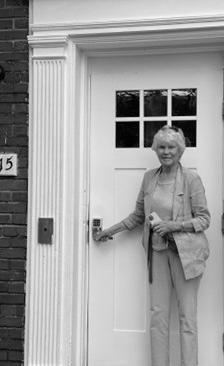
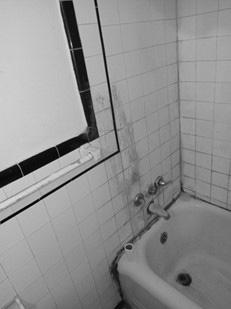

STEVE LILIENTHAL
Freelance Volunteer Reporter
Author Richard Kahlenberg, director of housing policy at the Progressive Policy Institute, tackles the twin minefields of zoning and education with his recent book: “Excluded: How Snob Zoning, NIMBYism, and Class Bias Build the Walls We Don’t See.” The book sheds light on programs — albeit very limited ones — that promote economic mobility and help families with limited incomes leave high-poverty areas for suburban neighborhoods. Kahlenberg examines the damaging impact housing policies can have on people of more limited means, affecting where they can live and their children’s educational future.
“Excluded” profiles several families who took advantage of programs that enabled them to find safer communities and schools, often to their children’s benefit.
Take Samantha from Springfield, Massachusetts. She and her children, including one who’s autistic, lived in a city beset with poverty and crime, and in which schoolchildren perform poorly on standardized tests in mathematics and reading. The middle school her son attended was not equipped to serve his needs. Thanks to a state program called Sno Mass (Supporting Neighborhood Opportunity in Massachusetts), the family moved to Longmeadow, a more affluent town with better, more supportive schools and safer streets. Her son began looking forward to school there.
“Longmeadow is like one of the greatest moves that I ever did,” Samantha declared in the book.
Providing vouchers for families with young children to leave high-poverty areas in favor of areas with safer neighborhoods and better-performing schools has the potential to break the cycle of poverty, according to a 2015 study for the National Bureau of Economic Research, “The Effects of Exposure to Better Neighborhoods on Children.” But, Kahlenberg writes, SNO Mass only helped 45 families in 2021; for every Samantha, “hundreds of thousands of low-wage families in the state remain cut off from opportunity.”
What’s blocking the many Samanthas across the country from accessing that opportunity?
During the 2020 presidential campaign, Democratic nominee Joe Biden endorsed the Obama administration’s Affirmatively Furthering Fair Housing (AFFH) rule requiring communities receiving funds from the Department of Housing and Urban Development (HUD) to assess fair housing practices and implement measures to“overcome historic patterns of segregation.” It also included examining exclusionary zoning practices.
The same year, avowed AFFH opponent former President Donald Trump attacked, then repealed the AFFH rule, warning suburban voters in thinly veiled racist language that it would lead to “bringing who knows” to their communities, resulting in plummeting home values and more crime. Now, in this year’s election, Trump again is claiming Democrats are seeking to “abolish the suburbs.”
Why are programs like the AFFH even necessary? It’s not that discrimination based on race is officially permitted after the 1968 Fair Housing Act. Indeed, “Excluded” cites polling data showing since the passage of the Fair Housing Act, white Americans’ acceptance of laws preventing racial discrimination in housing has appreciably increased.
But, unlike in countries such as Germany or Japan, where policies on land and housing are set more at the national level, and there’s less income segregation in housing, zoning in the United States is often a local issue. Affluent homeowners dominate meetings determining zoning policies in suburban communities.
This leaves openings for communities to try to limit their neighborhoods to people with higher incomes, Kahlenberg told interviewer Geoffrey Kabaservice on the Niskanen Center’s “Vital Center” podcast. The thinking in many communities, particularly affluent ones, often is: “We’re going to ban apartments, we’re going to ban even duplexes and triplexes. Only single-family homes. Many take it a step further and they say, you can live here so long as that single-family home sits on a plot of land that is at least a half an acre in size or sometimes even larger,” Kahlenberg said. “So this is a form of discrimination because the government is deciding who can live where, and it directly discriminates based on income. If you are Black and of means, you can come to the neighborhood, but anyone of any race who is economically disadvantaged will be shut out.”
And it’s not always just conservative people setting the zoning agenda. “Excluded” cites Brookings Institution’s Jenny Schuetz’s assertions in “Fixer-Upper: How To Repair America’s Broken Housing System” that “overly restrictive zoning is most prevalent and problematic along the West Coast and…from Washington, D.C. to Boston” which frequently “lean heavily Democratic.”
One policy to promote greater access to opportunity is to relax zoning laws to permit more multi-home — duplex and triplex — construction in neighborhoods. They would cost families less, a concern given the costs of health care, postsecondary education, and college debt, and allow families to save for retirement and rainy days.
As for gentrification, Kahlenberg in “Excluded” argues carefully calibrated zoning changes in lower-income neighborhoods can bring better opportunities for long-term, lower-income residents without causing displacement. He cites Jerusalem Demsas’ 2021 Vox article examining gentrification in which the journalist asserted white, wealthy neighborhoods with their restrictive zoning policies have sidestepped examination and refused class and racial integration successfully. “On the other hand, predominantly Black and brown neighborhoods often don’t gentrify due to disinvestment and centuries of racist and classist policies,” the article reads.
The Biden administration’s revised AFFH Rule, proposed in February 2023 but now undergoing interagency review before finalization, is one idea to promote greater equity. But its survival depends upon a victory for Kamala Harris. Another measure is Biden’s proposed Unlocking Possibilities grant program tying grants to communities taking it upon themselves to “eliminate exclusionary zoning and harmful land use policies.” A version of his proposal failed to clear Congress in the last session.
The Fair Housing Act’s success also leads Kahlenberg to suggest an Economic Fair Housing Act (EFHA). The proposal, developed in conjunction with attorney Thomas Loftus of the Equitable Housing Institute, would be a potentially powerful “stick” to “carrots” such as AFFH and Unlocking Possibilities.
EFHA, Kahlenberg argues, would enable suits to be brought against communities engaging in exclusionary zoning shutting out low-income and moderate-income households.
Given the possibility of a divided government at the federal level and the possibility of a Trump presidency, it’s unclear whether significant action can be taken on the national level in the near future to dramatically improve housing options for lower-income Americans. Indeed, the MAGA-aligned Heritage Foundation’s Project 2025 calls for jettisoning the Biden administration’s proposed AFFH rule. Still, not all is bleak.
In 2022, Biden unveiled executive actions to promote greater density and funnel support for more affordable housing. And Kahlenberg proves action can be taken locally. Minneapolis, bolstered by a new mayor and new members of the city council, worked to further affordable housing citywide through a mandated planning process. Kahlenberg noted in a summer 2024 National Affairs article that then “similar efforts” at reform occurred in a number of blue and red states.
“Excluded” provides a primer on not just how economic segregation by zoning works to undermine economic mobility in American society for lower-income Americans but it provides rays of hope about how things can change through Minneapolis’ example and the fact that in 2020 Biden withstood Trump’s charge he would “abolish the suburbs.” (Biden actually outperformed 2016 Democratic nominee Hillary Clinton in the suburbs.) The way things are, with too many Americans excluded from seeking a better life, need not remain the same.
As Street Sense readers decide which candidate will lead this country into the latter part of this decade, they should take into account the role access to better housing and education opportunities can play in providing greater housing opportunities for Americans of more modest means, and which
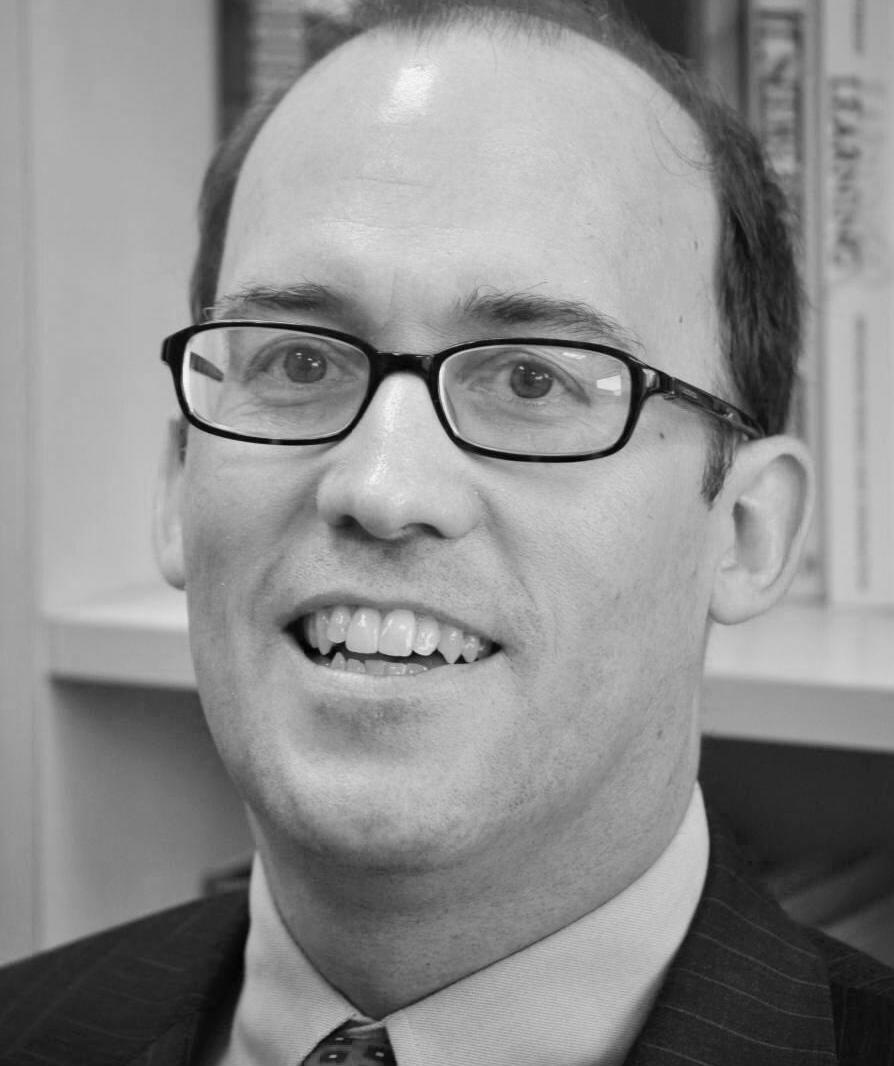
don’t lie: Meet the team at 7th and T
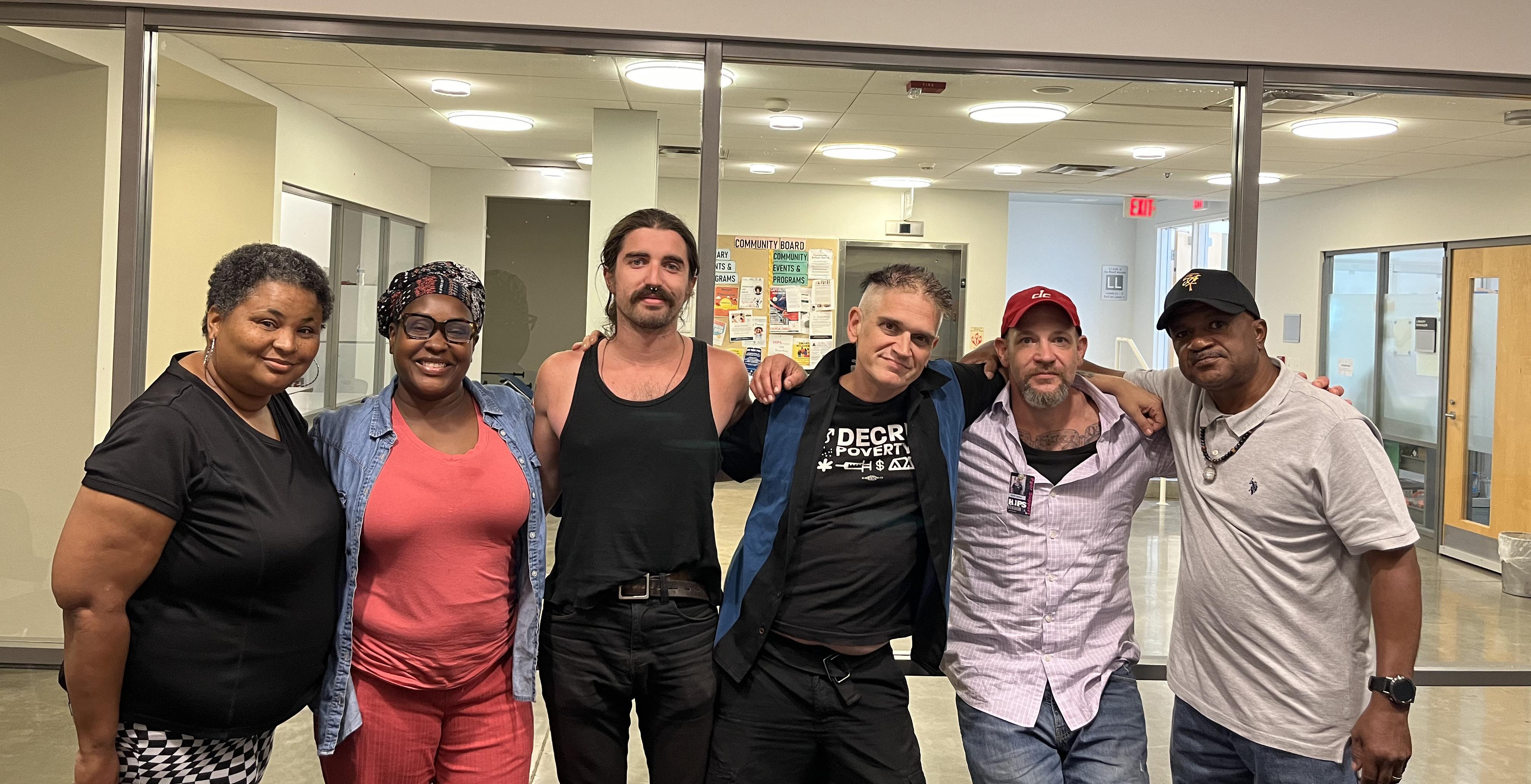
Hello, my name is Dominique Anthony and I am a former sex worker and drug user. Now, I am an advocate for HIV, mental health, and domestic abuse. In 2005, I learned about a non-profit called HIPS and I met some beautiful people. They’re almost like family to me and I love these people so much. I remember I got infected with HIV and learned how to live better and learned about harm reduction. It’s not what you do, it’s how you do what you want. I’m still learning how to be a part of the community and how we can save lives with harm reduction. I would like to introduce the team that I work with at HIPS for the 7th and T Street project, a needle exchange and resource station. The below interviews have been edited for length and clarity.
Tell me your story.
HIPS has been intertwined in my life forever. It’s always something that was present. Ten years ago, I was separated, I was living in squalor, unemployed, and trying to get stuff together. When I got out of rehab, I knew I wanted to work in addiction, but not in the “12 steps, you’re going to get sober way.” I went back to school for social work. I wanted an addiction treatment job, but harm reduction was closer to my views on addiction treatment than any rehab I interviewed with. At the time, HIPS was undergoing massive expansion, so we talked about how harm reduction and my theories could coexist. The 7th and T project started two and a half years ago in my world. It started with me joining the 7th and T task force.
Slowly, I saw headway being made on people. For me, this proves several theses: One: if this is successful, it proves that a very literal understanding of meeting people where they’re at is a good idea. It also proves that folks hired from the community is the ideal. It also proves the holistic viewpoint, because we are connected to everybody. We’re sitting here with needles, but I can get you into a clinic, or find housing.
How did you choose this team? Cause we got a good team.
I chose this team to represent different things, but everyone had passion and care. Also, I chose people who needed the chance I was given five years ago. Y’all are just fucking awesome, too.
How do you feel about harm reduction?
The difference between HIPS needle exchange and no HIPS needle exchange was huge. HIV and Hepatitis C plummeted in D.C. Unfortunately, for a variety of reasons, it’s back on the rise. Needle exchanges are great. They keep people safe. We are helping not just with clean-up and the one-for-one, we are keeping needles off the streets. There’s nobody yet who says “No, you should leave them on the ground.”
How is the project going?
The project is kicking ass, we came into this with a major upset from day one where we had to pivot completely and change things, because we believed we had a sponsored indoor location to start a center but it turns out we didn’t. We forged this team while losing almost an entire team. For a moment I thought it was cursed, but every bit of the curse turned out to be for the best.
Tell me your story.
My best friend was working on A Chosen Few, she told me about it and told me about HIPS. It resonated because I had experienced loss via overdose, and seeing family members and close friends using drugs. I myself have dealt with alcoholism and utilize cannabis for pain and anxiety. I’ve always been the type of person to see things for what they are. I was always able to see systematic things happening to people who look like me. I got involved with the Chosen Few because I wanted to be part of the solution. I was super, super excited coming onto this project, number one to be working with HIPS superstar Johnny. Johnny is energy and light, like if he can’t pull someone in, that person is just dead inside.
How do you feel about how D.C. has been changing, like with gentrification?
It’s disheartening. I’ve always viewed D.C. residents as prisoners of war, it’s an attack on the people. They’ve once again found an area where the land and the property are cheap so they run it down, buy it out, and complain about this area you chose to put in this situation. What made me fall in love with this project is there is a team of residents in the community who want this, who want us here. What they did not foresee was that we would have accomplices, someone who would stand in a drug-free zone with me, who ain’t scared.
How do you feel about the project?
It feels good, we are really turning numbers. I’m becoming a part of the community that I’m working for, and folks look forward to seeing me. Like HIPS is known, HIPS is D.C.
How do you feel about the new drug-free zones?
I can view things from different aspects of the table, however, it’s the disregard for our clients I don’t agree with. It’s the arrest for someone urinating in public, that is a human body function that must happen whether there is a bathroom for me to utilize or not. Why are they criminalizing someone, for relieving, that there’s liquid waste that needs to leave their body, and there’s nothing they can do about it? No one is choosing to sleep at a bus stop, it’s making poverty illegal to me.
What’s your view on harm reduction and sex work?
Prevention is proven. Some policymakers believe in harm reduction, but we could all do more. Sex work is work. Humans need to be protected. I treat people how I want to be treated.
Can you tell me your story?
I started getting high when I was young, it was a lot more innocuous substances. Then when I was 16 I started being like a hippie eating acid all the time and doing drugs in the rave scenes. By the time I went to school, I had already developed a heroin problem. Right after I flunked out of school, I went to my first program, and I’ve been in and out of programs in the last decade. I’ve had two periods of heroin addiction and two periods of fentanyl addiction, and I watched as the drug market became more synthetic. Herion was the scariest drug, and none of us knew what was in store for the chemicals in the market now.
I was able to get out of opiate addiction by pursuing music, and that became a replacement addiction for me. Only recently did I really come to grips with being an addict, and know that abstinence-based recovery is the best for me, but I don’t believe in a one-size-fits-all recovery.
When my music career fizzled out, I fell back into using opiates. It was in April of last year that I started using fentanyl. I was physically addicted within three days. I went through withdrawal and I didn’t realize what I was going through. I was not in a good emotional place, I started using it every day, and really quickly it became a matter of me just trying to get well, I stopped getting high and needed it to function. I didn’t really want to be completely sober until recently, I went to rehab on Valentine’s Day this year, it was really romantic.
How I got involved with HIPS, was in the music scene there is a presence of drugs. I don’t believe it’s my choice to stop people from getting high, so instead of creating a rule at my shows, I tried to make it as safe as possible. I would book Johnny to DJ my goth shows and that evolved into HIPS coming out to all my shows.
It is really difficult for me to look back at all the time I spent using it and not see it as a waste of time. Through the work I’m, doing now, I don’t feel like it’s a waste of time, I see how it’s an asset to helping other people.
Johnny. I called a couple of times, and he finally answered, I explained a little bit of my story and history, I used to have my own AA meeting and do a lot in the community. He said he could use a co-facilitator, and when he said that the universe had opened up. I said ok, this is it. Right then, I had the desire to quit drinking forever.
I went to the meeting and I was leaving and realized it was the same neighborhood I ran in and used to do all types of wild shit. I’m in the same neighborhood about to help the people I used to run with. I kept coming back. I’m not that person out there on the street, I’m gonna be out there to help, I was blown away. I didn’t know nothing about HIPS, but if Johnny said to go count rocks on the roof I’d be up there. I took the test to become a SMART facilitator, and studying for that and working on HIPS has really changed my life.
Then I got to 7th and T. It was super hard. I’m on the same corner with the same people, my mother and father was heroin addicts, and that’s where they copped, so it’s very spiritual. I can feel my parents’ spirit and presence, and like that I was transformed. I used to go up there with my mother and father to cop, and I remember when I was 4, I was sitting on my mother’s lap and a dude took out a gun and stuck it to my head. The pain that I see in the people I work with, I saw in my parents, so it’s an instant bond.
I’m grateful to my God, always taking care of me when I couldn’t take care of myself. My father died of heroin, right there at Howard University Hosiptal, so I understand pain and grief and how you escape that with drugs. I know that look, but I love the crew because they allow me to be me. They allow me to be silly, in the process of us working and doing this. I’m learning a lot still, I probably still have a lot to learn, I’m already seeing us do this in the future because the universe shows it to me.
Your tern, Keith.
I grew up in a weird family, it was abusive, restrictive, and away from the world. My sister died of a heroin overdose, but I didn’t know until five years later. I had a brother who died of a fentanyl overdose while I was in prison. He wasn’t a drug addict, he just got some coke one time that had some fentanyl in it, gone. My father died of Hepatitus, my mother is a 450 lb woman who didn’t feed her kids. I eventually was state-raised, and have been using since childhood. I actually started high school in Germany and alcohol was socially accpetable for teengaers there. I came to D.C., and I found out it is hard to get alcohol at 13, but it’s not hard to get drugs. I transitioned to anything to change the way I felt. Hopeless case, chronically homeless. I don’t know how many times in my life I’ve started over with nothing, like I bought plates, sheets. Sometimes I would get on a Greyhound, didn’t even know where I was going.
go home thinking no way I’m doing dope again. She picked me up, and she had a needle, and I didn’t even think about it, just grabbed it.
She passed away from a fentanyl overdose, nine months ago. That was what it took for me to get off dope. She was my safety net, I can’t even tell you how many times she Narcaned me. I never once thought there would be a time I would ever have to Narcan her, and I wasn’t there. I come home and she’s on the floor. I was supposed to speak at an overdose awareness event, it was like three days before the event. When I was ready to be clean, I knew where to go. I haven’t put a needle in my body since Septmeber, the last few years on it, I didn’t want to be doing it anyway.
HIPS hired me after she died, and I found that I’m good at it and enjoy it. I got off dope, I got a job, and I’m still homeless. I just got to a shelter this week, and I was outside since September. I went missing two or three times, like anywhere else I’d’ve been fired. This is a passion for me, I want nothing more than to see it grow.
Now it’s time for my interview.
I am A Chosen Few member in 2015 and I was a former drug user and sex worker. I am also an HIV advocate for the DMV. When I was 25 years old, I caught HIV. My ex-fiancee’s lover told me he had HIV and that I needed to go get tested. He saved my life. I was very angry, but not anymore because I accepted it and don’t do any pity parties anymore. I did this to myself.
I believe in decriminalization. You cannot get well in a cell. I couldn’t when I was locked up. My mental health was worse. I was having flashbacks, nightmares, waking up. I started having nervous breakdowns when I got pregnant with my son, and he’s now 22. My other son is 14, going to high school. My youngest son is 10.
I used to hang here on 7th and T and take the drug dealers’ money out of their pockets. I went to Cardozo and dated older men with money. I believe in harm reduction, it saved my life at a time when I didn’t want to have no life. This project is going to succeed. I am a writer/vendor for Street Sense. I am also improving my writing. I have been with them since 2017. I enjoy the newspaper and also like selling my newspaper as well. I am also a mental advocate for the DMV and my community. I have a story I need to tell. My mentor is El Drew, may he rest in peace. He told me to tell my story and keep telling it. Don’t look back at all. If it wasn’t for Big El Drew, I wouldn’t talk to people or tell my story. I was far from talking about my HIV status. Harm reduction means staying safe. I wish people were in harm reduction services because they help people who use drugs and sex workers. I wish I had a place where we could have a safe place, where people use their drugs in this place.
So what’s your story?
My story’s basically the same as the rest of us, I’ll just skip to becoming a part of this. I look at everything through a spiritual lens. I was at NIH battling alcohol. After going through the shakes and depression, I called up NIH and told them I needed to come in. About my second week, I could see alright, it’s your time to change. They had people come from AA and SMART. I checked SMART out online and met
My brother used to always call me his junkie brother. Through my brother dying, I met my most current partner. I had three months left on my sentence, and she was my contact when my brother was on life support, at one point she was like “I’ll pull the plug, I’ll do it myself,” and we talked about it. We got together, she was sniffing dope, I asked how long, she said three months. I was like “Oh God, you got no idea where this shit’s going to take you. For a while, it was my purpose to help her, and she didn’t want no part in it.
I hit the streets, we were out there. That’s where we met Johnny, doing outreach for HIPS. I was out there living like an animal, but then the van pulls up to the encampment and everybody’s running towards the van, everybody loved to see HIPS. I went back to prison on violation for a year, she got clean, she got a job at HIPS, her voucher came through. I
Here is what we need:
1) NO Judgment Zone
2) Be in a safe place
3) Have a place that tests their drugs
4) Teach about safe ways to inject drugs
5) Teach them about test strips
6) Teach about needle exchange
7) Access more vendor machines
DANIEL KINGERY
s stated in Lesson 1, the Declaration of Independence is the worst name for this government charter for these united States. That name makes it too easy to forget. It is far more than just a declaration of Independence. It details voter eligibility and vote counting. This is in accord with how corporations are established (also see Lesson 1 in the July 3 issue of Street Sense).
AThe declaration references the entire body of citizens when it uses the words “the governed” in the clause “governments are instituted among men, deriving their just powers from the consent of the governed.” Later in the document, the list of grievances identifies tyranny and despotism as actions taken without the approval of the citizens, like “imposing taxes on us without our consent.” We know both of those statements refer to citizens and not to officers or representatives in government, because of another grievance: “He has kept among us, in times of peace, standing armies without the consent of our legislatures.”
Every citizen, no matter their race, sex, age, religion, previous condition of servitude, homelessness, etc., possesses a legitimate right to vote. But all of them also possess the right to not participate in the voting process. This means the government has to register voters who qualify in accord with the declaration, and desire to participate; much the same as any corporation maintains a list of people registered as voters. Some special measures should be taken to register homeless citizens and housed citizens as voters. In order to prevent voter fraud, there should be a waiting period of six months to a year to prevent mass populations from registering on voting day, and then leaving the next day. Proof of citizenship and proof of residency should be established before the waiting period. If a person waits until the last minute to try to register and cannot present proof of citizenship or residency, they should have to wait for the next election cycle to vote.
Generally, the voter registration list should be purged at the end of the last election for the year. This automatically removes all the names of people who died, people who moved out of the area, and people who lost interest, as these people are not likely to re-register. Those who register will know they possess a vote that will be interpreted as either consenting to or withholding consent from candidates, making it more important for the voter to get a ballot to the polls if they want anything to pass or win. Otherwise, their vote will be counted against everything and everyone on the ballot. This demands that any balloted item received consenting votes from the total number of registered voters; or fail for lack of consent
There should also be a national database of registered voters that requires a current photo and fingerprint to better eliminate multiple registrations in different political jurisdictions. None of the above requirements violate any citizen’s right to vote. They give any citizen interested nearly a full year to re-register for the next voting cycle and they keep the elections as honest as possible, for all.
Now, what are citizens voting on? What does it mean to get the consent of the governed? A registered voter can either consent to or withhold consent from any balloted item or candidate, or all of them.
Old dictionary time:
Consent: 1. The act of yielding or consenting. 2. Concord; agreement; accord. 4. Tendency to one point.
To Consent: 1. To be of the same mind; to agree. 2. To cooperate to the same end.
Yielding and abstaining are not the same as consenting.
To Yield: 1. To resign; to give up. 2. To give up the conquest; to submit.
To Abstain: To forbear, to deny one’s self any gratification.
The yield definition applies to those who choose to not participate in voting from the start, by not registering as a voter. They yield to the will of the majority of the registered voters.
When a registered voter decides to not participate, they abstain by denying themselves any gratification from voting for or against something. To abstain, they must physically have their name removed from the list of registered voters.
As for how the votes are supposed to be counted: We are now dealing with registered voters only. The definitions of consent tell us what must happen for anything or anyone on the ballot to win.
The body of registered voters in a city, precinct, town, county, state, or congressional district has a known number of people registered as voters. It is a number established before the polls open. To get the consent of that population, the majority of the total number of registered voters must mark the same boxes on the ballot for the same issue or candidate. This is how it works mathematically.
Imagine a fictitious political jurisdiction that has exactly 100 registered voters. Like in the real world, several people, let’s say 60%, did not submit a ballot before the polls closed.
According to the consent of the governed, the majority of the total number of registered voters in this situation physically withheld their consent. On this ballot, everything and everyone failed due to lack of consent.
Enforcing the consent of the governed clause alone would keep well over 90% of all of the people presently in our elected offices out of office due to lack of consent. This also would remove the majority of people in appointed offices, because those who appointed them should not have been there to do so.
Unfortunately, we’ve allowed our government employees to destroy the sovereignty of our votes. We allowed them to declare the popular vote is a first-past-the-post type system where the winners must get just the majority of registered voters who submit ballots to the polls, not the majority of all registered voters.
If first-past-the-post were a horse race, a lot of people would be scratching their heads and wondering how can this be an honest race. No one knows where the finish line is until someone declares that the race has ended.
But the first-past-the-post vote count is still too slow at putting bad politicians into office. So, while we slept, our government destroyed the sovereignty of our vote count even more by using what they call a simple plurality.
With the simple plurality system, we are allowing issues to pass and people to be sworn into office who quite literally may have received just one vote more than nothing at all (or at the least, one more than the next closest competition.)
This is an even worse horse race. Here, when the race is declared over, still, no one has a clue where the finish line actually was. Only when someone else declares that all the ballots have been counted is this finish line established.
If the citizens of the United States of America want to return our sovereignty over government; we must enforce the law of the contract clause in The unanimous Declaration of the united States of America. This simply means helping protect the rights of those voters who are going to vote in opposition to you. This introduces the next civics lesson on our nation’s pledge.
As a Declaration of Independence, few people ever consider the tremendous value the charter has for us, beyond an
independence that we really, in action have never enjoyed in these United States of America since 1776. Make certain to ask the editor for more on this topic.
This link https://www.cleanhonestgov.com/glossary-of-oldword.html takes you to a glossary of screenshot definitions. This way, you can check my accuracy. For the entire, downloadable dictionary https://www.cleanhonestgov.com/ older-dictionaries.html
Only time will tell.
Daniel Kingery owns and runs CleanHonestGov.com; a website that teaches others, in a matter of hours, what it took him 25 years to discover about our government. If anyone wishes to debate or challange any content within, please email at danielmkingery@gmail. com
GRACIAS GARCIAS Artist/Vendor
After John Lennon
In front of his killer… cold steel glances at a warm barrel as if nothing is eternal
yet even lives are uncertain when told backward… die and be born
imagine happiness… ride the bullet back to earth into a walking head
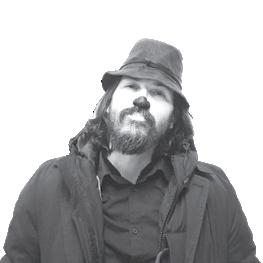
Jazz has a funky beat It will heal your soul
Listen to the funky beat

So let’s dance to the jazz beat
ANGIE WHITEHURST AND LISA BLACKBURN ULLVEN
oes bad news travel faster than good news? That question came to mind when Lisa asked me if I had heard of PCEs (Positive Childhood Experiences). I heard a lot about how ACEs (Adverse Childhood Experiences) negatively impact our health, but this was the first I had heard of the Science of positive and adverse childhood experiences, otherwise known as PACES.
DEager to explore and bring the power of PCEs to you, we were thrilled to be a part of the 2024 Hillsborough County PACES Conference. Nikki Daniels, co-host of the conference said, “We need to figure out a way to bring these Positive Childhood Experiences into communities.”
Before we PACE forward, what is the impact of doing nothing?
Let’s take a look back at the childhood of those living in prisons or on our streets. To calculate a person’s ACE score, you add one point for each of the 10 more prevalent “hurtful” negative ACE incidents.
Seattle University’s Project on Family Homelessness illustrates how the likelihood of homelessness progressively climbs as adults-to-be accumulate eight or more “hurtful” incidents. When Denise Hughes Conlon, an expert in ex-offender transition, had ex-prisoners calculate their scores, her team realized the ex-offenders experienced nearly all 10 “hurtful” incidents. She said, “The former prisoners’ average ACE score was a nine and that did not include the fact that many of the adversities occurred multiple times.”
Scores of eight or nine translate to a childhood filled with nearly all 10 ACE incidents: physical abuse, recurrent emotional abuse, sexual abuse, alcohol or drug abuse in the home, an incarcerated household member, a household member with chronic mental health issues, a mother treated violently,
not being raised by both biological parents, emotional neglect, and physical neglect.
As part of creating the game-changer science chapter of “Secrets to Sustainable Solutions,” Lisa collaborated with Dr. Vincent Felitti, an expert on childhood trauma and co-principal investigator of the ACEs study. He shared that compared to those not dealing with ACE incidents, those facing adversities are four times more likely to become an alcoholic, three times more likely to be absent from work, twice as likely to have serious financial problems, and three times more likely to have serious job problems.
What if we do something?
At the conference, Daniels and other presenters shared how PCEs can counteract the negative impacts of ACEs. The “helpful” PCEs have the power to protect adult mental health. Three-quarters of those with 3-5 PCEs reported good mental health, described as “not reporting depression or poor mental health.” Nearly 90% of those with 6-7 PCEs reported good mental health.
Communities can lead transformation by creating opportunities for youth to participate in community traditions, feel a sense of belonging in high school, feel supported by friends, and have at least two non-parent adults take a genuine interest in their lives. Those are the 4 PCEs that are in our control as members of the community.
AAA has been demonstrating the power of PACE for over 100 years!
Our road trip story took us over to Oakstead Elementary School, where Sophie Cuviello earned the “Florida Safety Patrol of the Year” award. It was easy to see this young lady has PCEs in her life such as the mentorship of P.E. teacher Scott Tassone. This school has 50 safety patrollers who go beyond their critical role of ensuring physical safety. They add fun and inspire mental fitness. The kids and even the adult
staff can’t help but join in on Dance Party Friday, aimed to get the students excited about learning.
The 100-plus years of success of the safety patroller model makes sense. While they started, well before the science of PCEs, the AAA safety patrol structure naturally follows the 4 PCE opportunities noted. Oakstead Elementary brings the students a fun community tradition with Dance Fridays. They create a sense of belonging as they say “good morning” to each student. They help create a feeling of being part of the school organization. Last but not least, the program facilitates a structure where teachers are positioned to coach along the way as non-parent adults taking a genuine interest in the lives of the children.
Reflecting on the possibilities ahead!
With 679,000 patrollers across 35,000 U.S. schools, the AAA School Safety Patrol program is one of the largest safety programs in the world! People in the program have gone on to be astronauts, Nobel Prize winners, Olympians, presidents, and even Street Sense road trip story writers. Yes, Lisa and I were both safety patrollers. Lisa recalls the moment her fifth-grade teacher asked her to be a safety patroller. Lisa replied, “But, I am bad.” The teacher laughed so hard it was clear she did not believe that was true. Lisa went on to grow meaningful skills as a safety patroller. Imagine the possibilities if we set people up for success by adding a little more of those “positive” experiences to our lives.
Our vision is to share advice that’s as easy as 1-2-3 on how to inspire, empower, and engage children and community members. For parents, teachers, and advocates for children, we invite you to explore with us at https://www.youtube.com/@ GuidedResults.
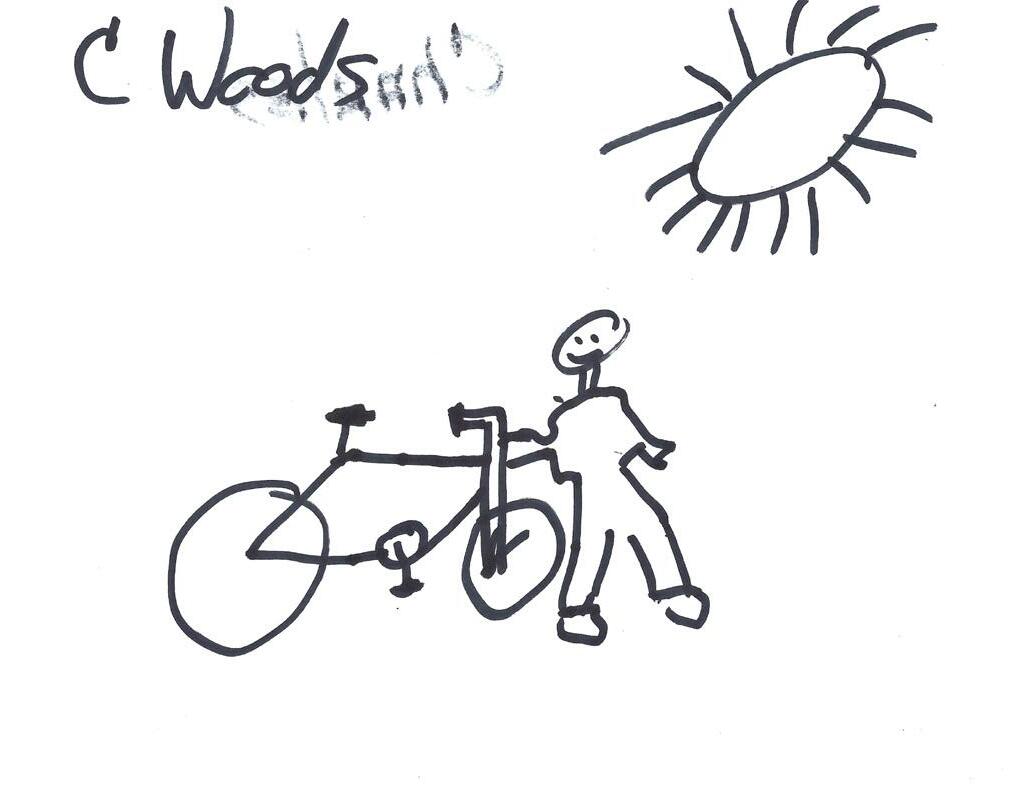
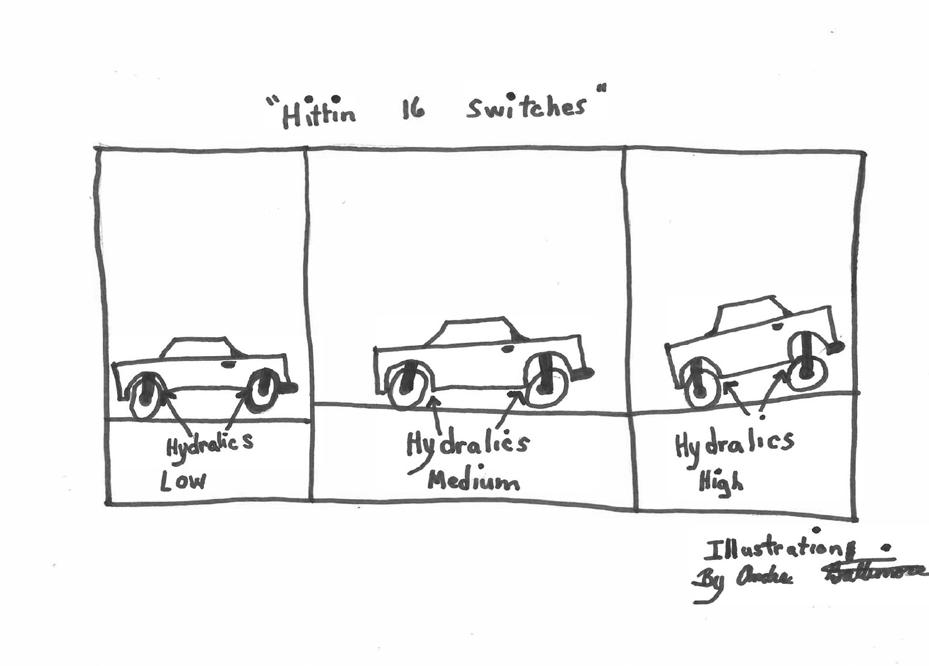
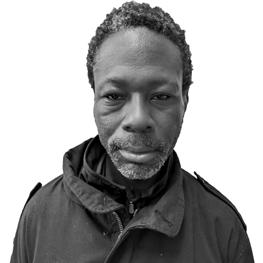
JEFFREY CARTER Artist/Vendor
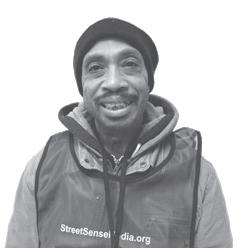
A man doesn’t have time in his life to make time for everything. And a man doesn’t have time for everything because he only has time for himself to find his gifts, figure out who he is, and seek his purpose in life. This is human nature one-oh-one.
ANDRE BRINSON
Artist/Vendor

In 2022, I was driving for Amazon. I was delivering packages in an area that was full of Trump supporters, confederate flags, Trump posters, and trucks riding with flags. “SMH.” Before my experience driving for Amazon, I was afraid of going into those areas. But I picked up the route, and what an experience it was. For sure, I have had some bad experiences in those areas, but one experience was so surprising — here we go:
One day, I had a delivery at a house full of flags and full of people cooking out, all white folks. Surely, I was shocked and not going to deliver the package to the house, “SMH,” because we have the right to not deliver to any house we don’t feel safe going to. But I decided to take my chances because everything is an experience to me.
So I walked down this long driveway. The people were looking. I was looking, thinking to myself that I just made a mistake, “SMH.” So as I got closer and closer, my heart was beating so fast and I truly didn’t know how this situation was going to play out.
To my surprise, the people were so, so, so nice to me. I was surprised they were so nice and I felt bad I judged them because they were Trump people, so I truly apologize for that.
The point to this story is that judging someone is not good, and you can miss out on a lot of understanding.
Peace and love.
JENKINS DALTON
Artist/Vendor
Weather forecast: Day was good, sunny and cloudy! A day will not be just 24 hours, but with day and night, about 48 hours. Summer days go from 48 to 36 hours. Autumn days go from 36 to 42 hours. Spring days go from 32 to 38, sometimes 40 hours. Winter is short, 10 to 8 hours. Don’t forget northern preferences on time. I need two or more watches to keep your time.
I don’t have food, If I did, I would eat more and in my home. I am homeless and food would be great. I depend on donated meals.
You, you are a self-reliant person, sometimes you cook and get food from restaurants and other sources of commercial food. Please be aware of the food pyramid and enjoy a healthy lifestyle.
Today is about talk and psychology.
Humility is always loving, a positive view with it. If we empty our heart of self, God will send his love.
When a man is sincerely humble and never wants too much or wants as much as a grain of praise, there is scarcely any limit to what God will do for him.
Whether it is a prayer or praise, whether it is work or suffering, the sacrifice of humility cannot be understated. Humility makes one ready.
RONNELL WILSON Artist/Vendor
The decision to do so didn’t come quickly It was like a sneeze so to a sponsor and meetings I must go
Avoiding relapse makes the will of any man superhuman strong
Thinking I can win this battle alone would be an attempt that ends oh so wrong
Getting rid of cravings has to be a blessing only sent from heaven and just think — that one relapse will put me back at the beginning
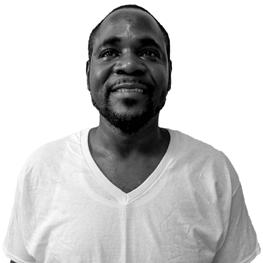
WILLIE FUTRELLE
Artist/Vendor
Could A Righteously Disciplined Individual Neutrally Allow Lawlessness?
People Enjoy Achieving Change at the beginning
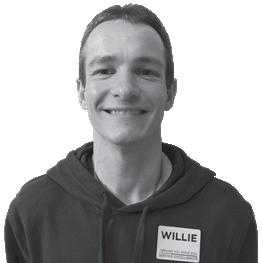
SYBIL TAYLOR Artist/Vendor
Summer is finally ending, and we’re going into early fall. My heart is full of hurt and sorrow from the laughs and talks we had. You were my best friend, my heart, my soul. I would call you any time for you to listen to my problems, or yours. I miss the visits. When you got sick, my heart really went astray. I wish I could have done more. This year is very upsetting without you and your smile. I took care of you the best way that I could, but you were in pain, in ambulances non-stop, short of breath. You gave up eating and drinking water. The cancer had spread rapidly, and you could no longer speak or talk. The morphine kept you from that pain. When I last saw you in February, you were looking very well and you had not yet lost your taste. Mom, I miss you this upcoming fall. You are in Heaven rejoicing with Dad. I love you forever Mom.
Playlist:
All Marvin Gaye songs, live at the Kennedy Center “His eye is on the sparrow” “Abraham, Martin, and John”

KYM PARKER Artist/Vendor
To know God’s love
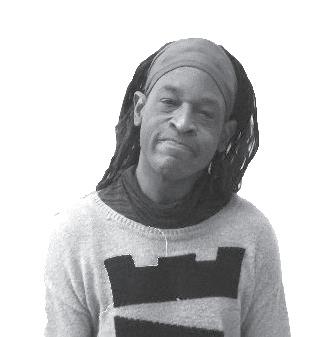
To understand where we are in her plans
To know she loves us completely and she always has our back
She created us in her image
She shows us empathy, compassion, love
She tells us all to love everyone
Black, white, red, brown, thick, thin
All respect
All matter to her
She knows
Everything in your world
She is on earth
She is power, pure power
She is mercy
She is grace
She is the one
I say that because I know she’s the one I pray to
When we talk, it’s beautiful
When we don’t speak, it’s still beautiful
She knows our pain
She knows our worry, and she takes it away
Our doubt, she takes it away
She knows everything
She helps, she hears
She heals, she shows sympathy
Her grace, mercy, and kindness show in everything she does
From the rainfall to the snowfall
Everything is her
The one
She knows everybody
Because she made us all in her image
So love yourself
Love your children
When you ask
She’ll show you love
Have faith and believe in her
That’s what I do
My mother, my grandmother, and my great-grandmother
They all say the same
Love respect, and show compassion for all her children
MAURICE SPEARS
Artist/Vendor

CHON GOTTI Artist/Vendor

The world is a symphony of beauty, unfolding in endless variations. At dawn, the sun rises, painting the sky with hues of pink, orange, and gold, casting a warm glow over the serene landscapes below. Birds sing their morning songs, their melodies blending harmoniously with the rustle of leaves in the gentle breeze. Dew-kissed flowers bloom, their petals glistening like tiny jewels in the early light.
Mountains stand tall and majestic, their snow-capped peaks piercing the heavens, while valleys beneath are carpeted with lush greenery, rivers winding through them like silver ribbons. The ocean stretches infinitely, its waves crashing against rugged cliffs and gently lapping sandy shores, creating a soothing, rhythmic sound that echoes the heartbeat of the earth.
Forests are teeming with life, from the towering trees that have witnessed centuries pass to the smallest insects hidden in the underbrush. Sunlight filters through the canopy, casting dappled shadows on the forest floor, where a myriad of creatures scurry and flutter, each playing their part in the intricate web of existence.
Deserts, seemingly barren, hold their own allure, with rolling dunes sculpted by the wind, shifting and changing in an endless dance. At night, the sky above becomes a vast canvas, filled with countless stars that shine with a brilliance unmarred by city lights, reminding us of the infinite universe beyond our own.
In cities, human ingenuity has created towering skyscrapers that glisten in the sunlight, parks that offer oases of green amidst the concrete, and art that adds splashes of color and creativity to urban life. People from diverse cultures bring their own traditions, cuisines, and perspectives, enriching the tapestry of humanity.
The world’s beauty lies not just in grand vistas but also in the small, everyday moments: the laughter of children, the kindness of strangers, the simple pleasure of a walk in the park. It’s in the resilience of nature, constantly renewing and adapting, and in the spirit of people, ever hopeful and striving for a better tomorrow.
Indeed, the world is a masterpiece, a testament to the wonders of creation, where every element, whether grand or humble, contributes to the magnificent whole.
When organizations lie to the government and investors to secure funding or support, they are ultimately compromising their integrity and trustworthiness. This can have serious consequences not only for the individuals in the organizations but also for the communities they serve.
In his book, author John Hooker explores the moral implications of deception in the business world. He writes that although deception is sometimes necessary for survival and success, it should be used sparingly and with careful consideration of the potential ramifications.
Now, after Hooker notes that possible contradiction, I have a question for you, readers: How do you think organizations should balance the need for resources and support with their ethics?
ROCHELLE WALKER Artist/Vendor
I am a poet who came to Street Sense five years ago. Still, sometimes I think I have no sense.
I am a poet who also creates short stories and other pieces that motivate me to keep doing better and better.
I am a teacher and a poet. Both make me realize something special is inside of me.
I am the poet on the scene happy and grateful for the chance to grow.
I have achieved new levels of accomplishments in my life.
I am Ms. Rochelle. My game is selling Street Sense newspapers to help the homeless.
I. Am. Somebody!

JACKIE TURNER Artist/Vendor
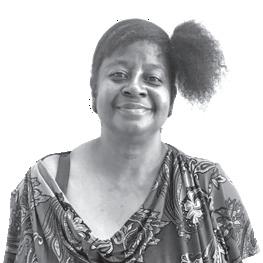
The children in foster care. Those who are homeless. They and many, many others have no family. Sometimes they have no idea where they are. Or, worse, who they are, without a mom, a dad, a sister, or a brother. When foster children turn 21 they age out of the care system and no longer have help unless they luck up and the government steps in. Sadly too often when that happens, the foster child doesn’t know where to seek help. Homeless people have some of the same problems, e.g., desperately wanting to escape the streets to their own place to live but often not knowing how to do that. So, help someone when you can. You can start by looking around and seeing what small things — which won’t be “small” — you can do.
Across
1. Grammarian’s “Me too,” maybe (3 wds.) (2,2,1)
6. Astronomical scales?
11. Prosecutors, for short (abbr./initialism)
14. Calf-length skirts
15. “The Wire” actor Elba
16. Wall St. debut (abbr./initialism)
17. Amazon Echo “assistant”
18. Not fine, as grain
19. Marshal at Waterloo
20. Floppy eared pollen transporter?
22. “Despicable Me” character
23. Aural warning signs in a junkyard, maybe
24. R&B group ____ II Men
25. Kind of reasoning meaning “from first principles: (2 wds.) (1, 6) (Lat.) (RIO PAIR anagram)
28. “Roseanne” star
30. Campus bigwig
31. One deemed ‘worthy’ of being interviewed on the red carpet
36. Heavenly body, to a poet
37. Eucalyptus-loving shark?
39. Pastoral setting
40. Sinks below the surface, as an undersea craft
42. ___ rock
43. “____ Jury” (First installment in Mickey Spillane’s classic series of Mike Hammer novels) (2 wds,) (1,3)
44. A bad thing for would-be musicians to have (2 wds.) (3, 4) (RETAINS anagram)
47. Cutting-edge set, briefly (2,2 (abbr./ initialism)
49. Withdraw gracefully (2 wds.) (3,3)
51. “A jealous mistress”: Emerson
52. Snake-battling food fish?
57. ___ v. Wade
58. Cloudless
59. “Come in!”
60. Device for taping TV shows (abbr./ initialism)
61. Actor Warner who portrayed Dr. Fu Manchu and Charlie Chan
62. Fertilizer and gunpowder ingredient
63. Craving
64. Collaborative websites
65. Alternatives to sunroofs (1-4)
Down
1. Asian nurse
2. Fodder holder
3. Gulf of ___, off the coast of Yemen
4. Stirs together with other ingredients, in cooking (2 wds.) (5,2)
5. “Absolutely not!” (3 wds.) (1,3,2)
6. Poems that often start “There once was a...”
7. Archetype
8. Toots one’s own horn
9. Small brook
10. “For ____ sow, so shall...” (2 wds.) (2,2)
11. Chest-beating Outback barker?
12. Mimic’s skill
13. Soviet cosmonaut carrier name
21. Slot machine symbol
24. Cold call?
25. Commotions
26. Andean land
27. Swamp-wading Easter symbol?
28. “The Fresh Prince of ____ Air”
29. Attorneys’ org. (abbr./initialism)
32. Help wanted abbr. (initialism)
33. Caesar’s to Brutus were “Et tu Brute?” per Shakespeare (4,5) (OLD STRAWS anagram)
34. Salty drop of sorrow
35. Thanksgiving dish that may be candied
37. Verbal shrug
38. “Who ___ we kidding?”
41. Cable network that began as a 24-hr. source for music (abbr./initialism)
42. “I meant right now!” (3 wds.) (3,2,2)
45. Charged particle
46. Political activist/rocker Ted
47. Stan : Laurel :: Oliver : ____
48. Operated, as a car or truck
49. Quite dismal, as an outlook
50. Muscat native
52. Garbage barge
53. “___ want for Christmas ...” (2 wds.) (3,1)
54. “A Man Called ____” (2022 Tom Hanks film)
55. Permeate (through)
56. Drops the ball

This crossword puzzle is the original work of Patrick “Mac”McIntyre. It is provided to us courtesy of Real Change News, a street paper based in Seattle, Washington. Learn more about Real Change News and the International Network of Street Papers at realchangenews.org and insp.ngo.

Housing/Shelter Vivienda/alojamiento Case Management Coordinación de Servicios
Academy of Hope Public Charter School
202-269-6623 // 2315 18th Pl. NE
202-373-0246 // 421 Alabama Ave. SE aohdc.org
Bread for the City 1525 7th St., NW // 202-265-2400 1700 Marion Barry Ave., SE // 202-561-8587 breadforthecity.org
Calvary Women’s Services // 202-678-2341 1217 Marion Barry Ave., SE calvaryservices.org
Catholic Charities // 202-772-4300 catholiccharitiesdc.org/gethelp
Central Union Mission // 202-745-7118 65 Massachusetts Ave., NW missiondc.org
Charlie’s Place // 202-929-0100 1830 Connecticut Ave., NW charliesplacedc.org
Christ House // 202-328-1100 1717 Columbia Rd., NW christhouse.org
Church of the Pilgrims // 202-387-6612 2201 P St., NW (1-1:30 on Sundays only) churchofthepilgrims.org/outreach
Community Family Life Services 202-347-0511 // 305 E St., NW cflsdc.org
Community of Hope // 202-232-7356 4 Atlantic St., NW communityofhopedc.org
Covenant House Washington 202-610-9600 // 2001 Mississippi Ave., SE covenanthousedc.org
D.C. Coalition for the Homeless 202-347-8870 // 1234 Massachusetts Ave., NW dccfh.org
Father McKenna Center // 202-842-1112 19 North Capitol St., NW fathermckennacenter.org
Food and Friends // 202-269-2277
(home delivery for those suffering from HIV, cancer, etc) 219 Riggs Rd., NE foodandfriends.org
Foundry Methodist Church // 202-332-4010 1500 16th St., NW foundryumc.org/idministry
Identification services
Friendship Place // 202-364-1419 4713 Wisconsin Ave., NW friendshipplace.org
Georgetown Ministry Center // 202-338-8301 1041 Wisconsin Ave., NW georgetownministrycenter.org
Jobs Have Priority // 202-544-9096 1526 Pennslyvania Ave., SE jobshavepriority.org
Loaves & Fishes // 202-232-0900 1525 Newton St., NW loavesandfishesdc.org
Martha’s Table // 202-328-6608 marthastable.org 2375 Elvans Rd, SE
2204 Martin Luther King Ave. SE
Miriam’s Kitchen // 202-452-8926 2401 Virginia Ave., NW miriamskitchen.org
My Sister’s Place // 202-529-5991 (24-hr hotline) mysistersplacedc.org
N Street Village // 202-939-2076 1333 N St., NW nstreetvillage.org
New York Avenue Shelter // 202-832-2359 1355-57 New York Ave., NE
Patricia Handy Place for Women 202-733-5378 // 810 5th St., NW
Samaritan Inns // 202-667-8831 2523 14th St., NW samaritaninns.org
Samaritan Ministry 202-722-2280 // 1516 Hamilton St., NW 202-889-7702 // 1345 U St., SE samaritanministry.org
Sasha Bruce Youthwork // 202-675-9340 741 8th St., SE sashabruce.org
So Others Might Eat (SOME) // 202-797-8806 71 O St., NW some.org
St. Luke’s Mission Center // 202-363-4900 3655 Calvert St., NW stlukesmissioncenter.org
Thrive DC // 202-737-9311 1525 Newton St., NW thrivedc.org
Unity Health Care unityhealthcare.org - Healthcare for the Homeless Health Center: 202-508-0500 - Community Health Centers: 202-469-4699
1500 Galen Street SE, 1251-B Saratoga Ave NE, 1660 Columbia Road NW, 4414 Benning Road NE, 3924 Minnesota Avenue NE, 765 Kenilworth Terrace NE, 850 Delaware Ave., SW, 3240 Stanton Road SE, 3020 14th Street NW, 425 2nd Street NW, 4713 Wisconsin Avenue NW, 2100 New York Avenue NE, 1333 N Street NW, 1355 New York Avenue NE, 1151 Bladensburg Rd., NE, 4515 Edson Pl., NE
Washington Legal Clinic for the Homeless 1200 U St., NW // 202-328-5500 legalclinic.org
The Welcome Table // 202-347-2635 1317 G St., NW. epiphanydc.org/thewelcometable
Whitman-Walker Health 1525 14th St., NW // 202-745-7000 1201 Sycamore Dr., SE whitman-walker.org
Woodley House // 202-830-3508 2711 Connecticut Ave., NW
For further information and listings, visit our online service guide at StreetSenseMedia.org/service-guide
Maintenance Tech
NVT Staffing // 810 Vermont Ave NW
Full-time
Daily duties include, but are not limited to maintaining records of any work and inspections done on-premises; performing inventory on repair supplies; keeping repair tools and supplies clean and organized; setting up repair appointments with mechanics or electricians when needed; and installing equipment, pipes, light bulbs, etc.
REQUIRED: All candidates must pass a criminal background check.
APPLY: tinyurl.com/MaintenanceTechNVT Cook
Sodexo // Howard University
Full-time
The cook will accurately and efficiently prepare, portion, cook, and present a variety of hot and/ or cold food items for various meal periods such as breakfast, lunch, dinner, and special/catered events.
REQUIRED:High School diploma, GED or equivalent. Physically fit to work.
APPLY: tinyurl.com/CookSodexo Crew
Trader Joe’s // 750 Pennsylvania Avenue SE
Part-time
Crew Members duties may include operating the cash register in a fun and efficient manner; bagging groceries, stocking shelves; creating signage to inform and delight customers and helping customers find their favorite products.
REQUIRED: n/a
APPLY: tinyurl.com/DCTraderJoesCrew
Hiring? Send your job postings to editor@StreetSenseMedia.org

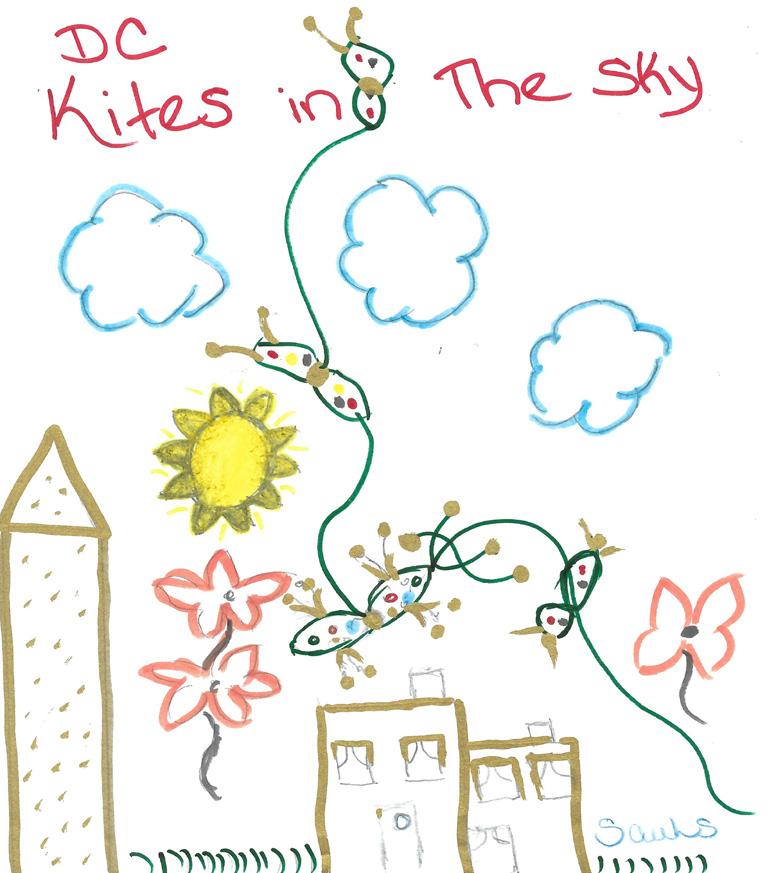
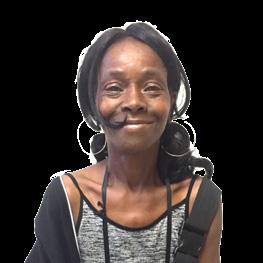
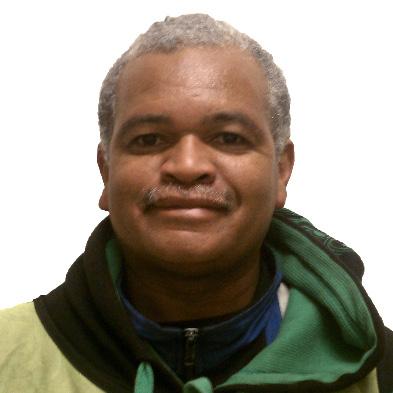
David and Donald are my brothers. Carl is my stepbrother. My mother is Elaine Tuzon. My father is Ernesto Tuzon. I, Daniel, love to eat some hot dogs for dinner. I love to eat pancakes for breakfast, too. Yes, and I love to eat some watermelon at the beach!
